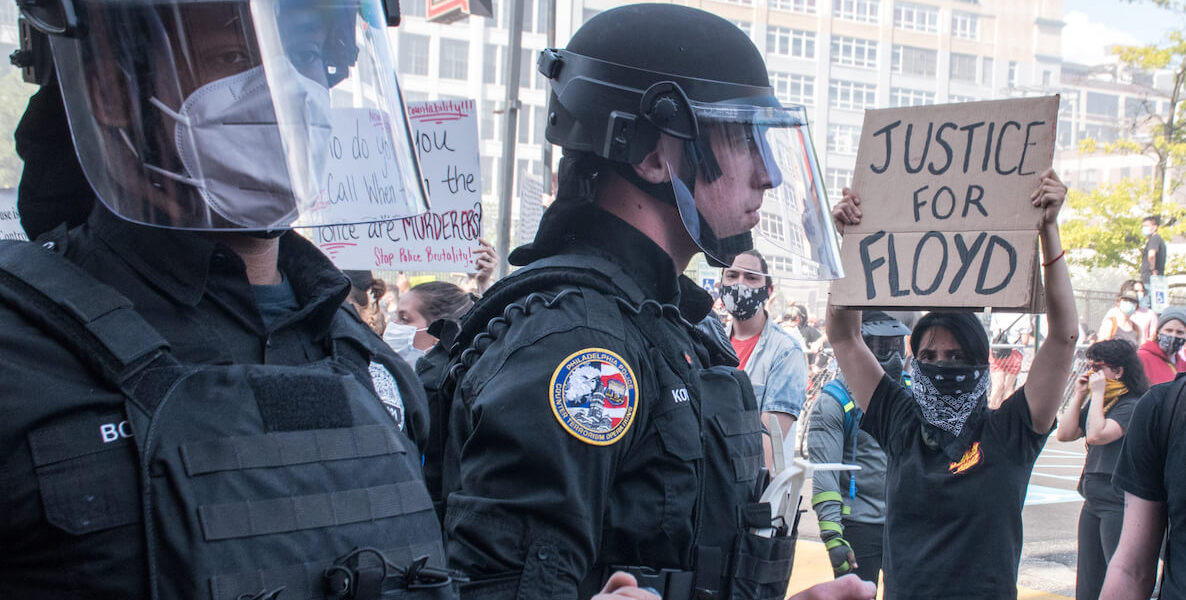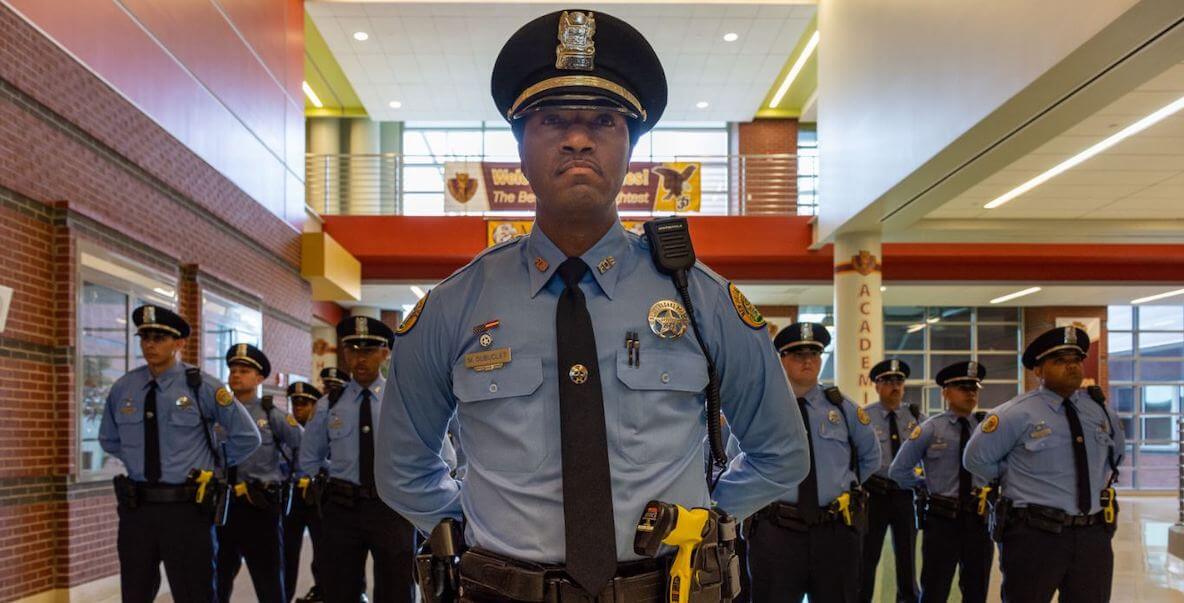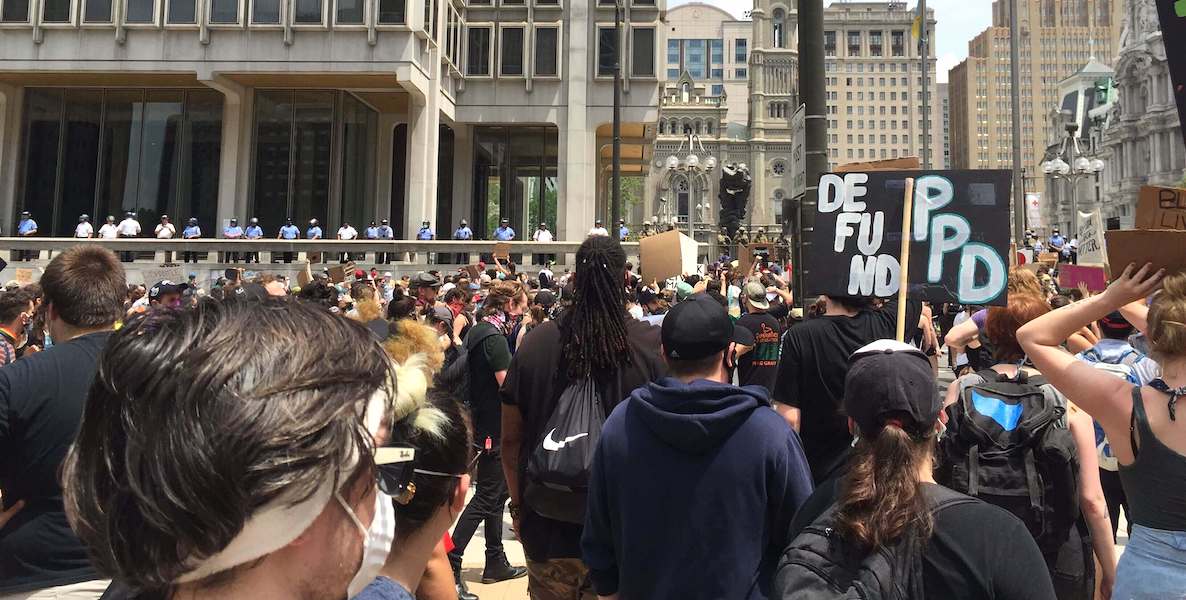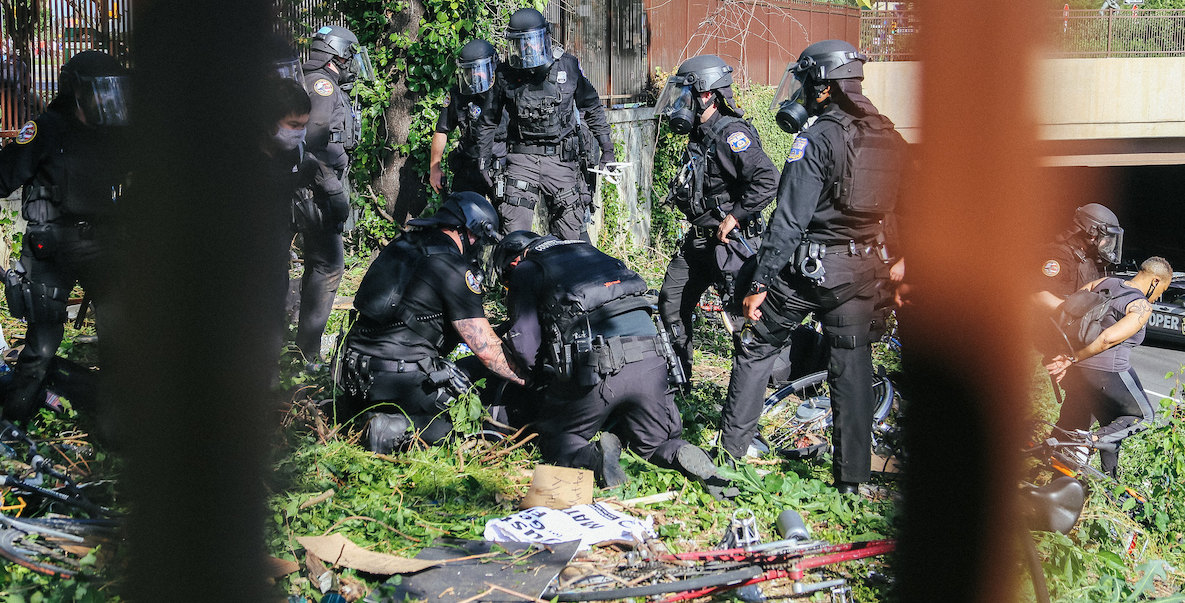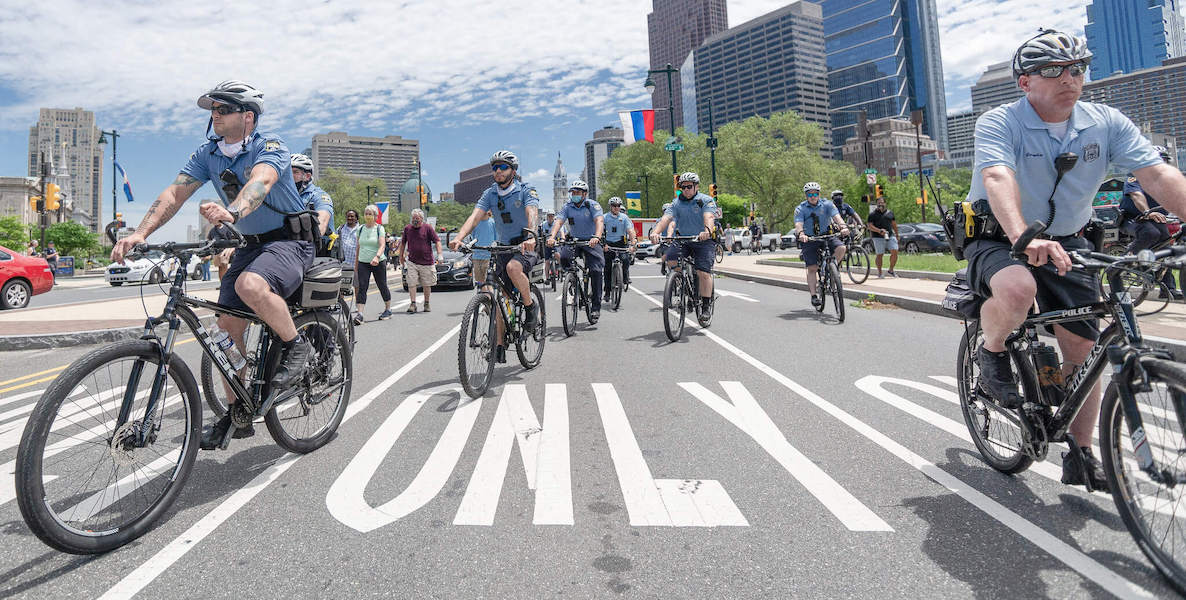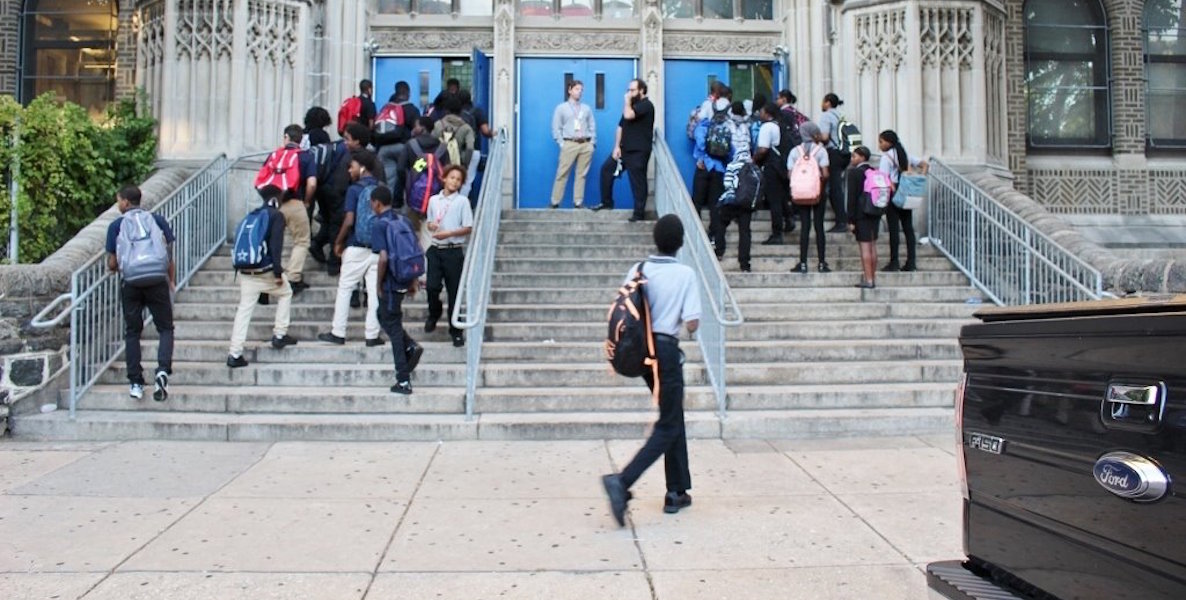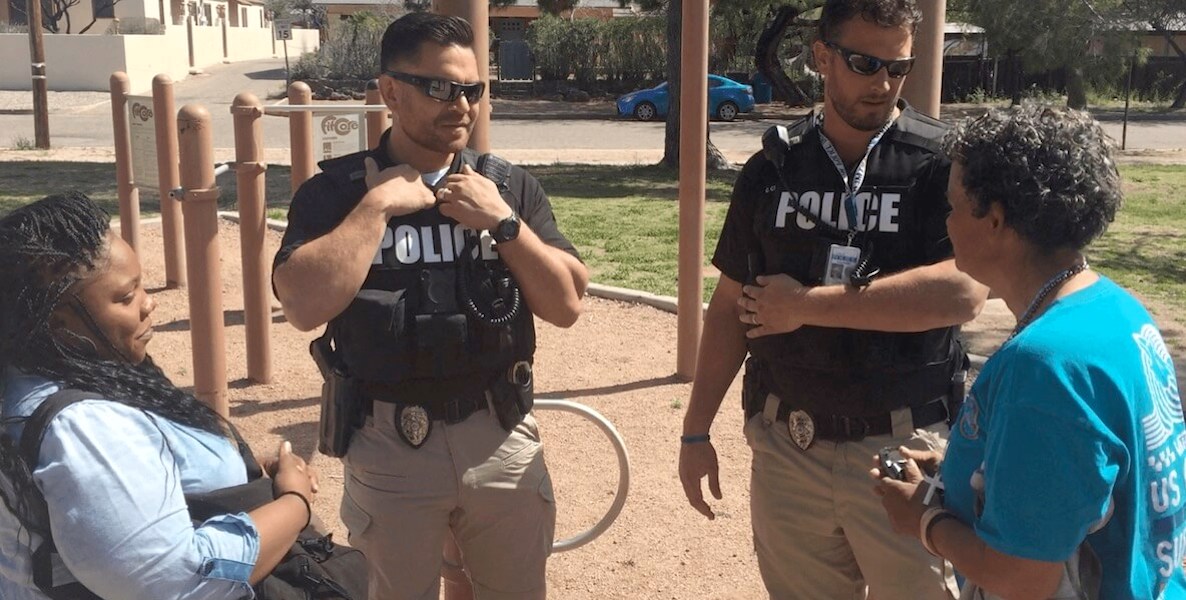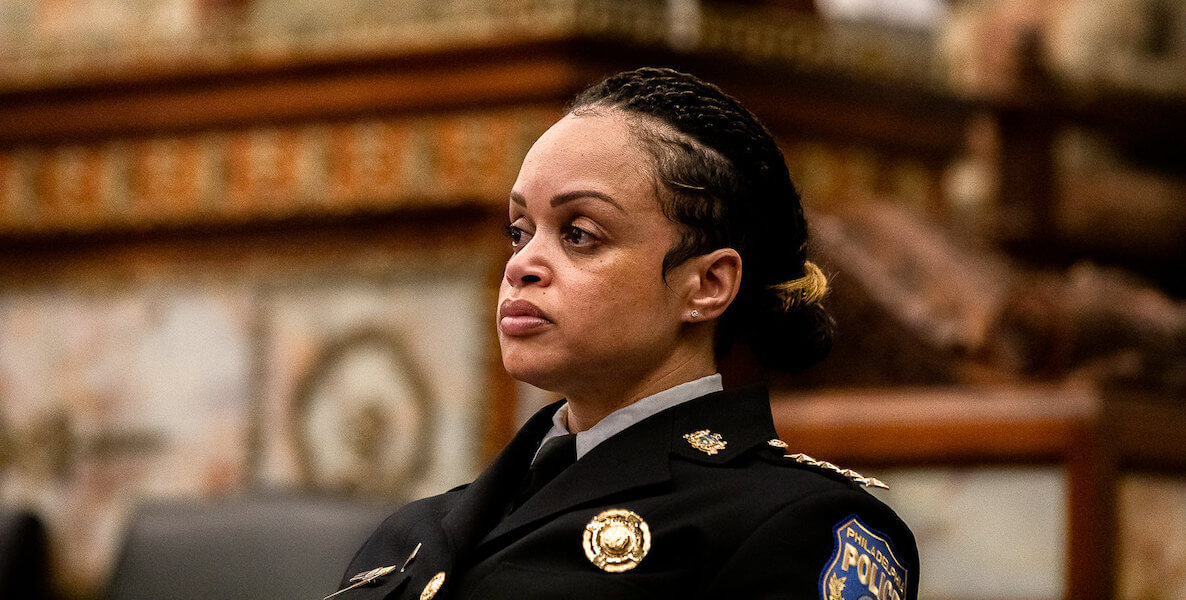![]() A few things to get out of the way.
A few things to get out of the way.
First: No police department is or ever can be perfect. (As Officers Mike Chitwood Senior and Junior both like to say, “When you hire from the human race, things are gonna happen.”)
Second: Even with all of the work that’s needed to reform the Philly Police Department (PPD), and as utterly uncool as it may be to acknowledge this, PPD is actually doing at least some things right.
Notably, they’re held up by The Council of State Governments as a model mentor city when it comes to first responder diversion and referral programs; Philly’s program is called Police Assisted Diversion (PAD), and it’s a pilot to divert “low-level, non-violent drug, prostitution, and retail theft offenders away from the criminal justice system and towards supportive, peer-based social services that are customized to the participants’ needs.” While it’s in its infancy—it only operates in three districts, during limited hours—and is sorely in need of more funding if it wants to scale, it shows promise.
Looking Forward
With that out of the way, a proposal:
As PPD considers how to move forward, why not turn to Tucson, Arizona, for inspiration? There, the city has a one-of-its-kind, four-tiered approach to incorporating behavioral health into its practices. Yes, mental health programs like CAHOOTS in Eugene, Oregon, and counties like Lake County in Illinois, and Plymouth County in Massachusetts, are often held up as ones to emulate. But Tucson’s reforms, under the leadership of Chief Chris Magnus and Assistant Chief Kevin Hall, are more comprehensive in scale.
Here’s how their programs work. At the most basic level, everyone in the department goes through a 12-hour mental health first aid class. Then there’s a 40-hour crisis intervention training (CIT)—it’s voluntary, and extremely popular: 80 percent of their patrol have gone through it, and there’s a waitlist to take the course.
Tucson’s Mental Health Support Team is made up of detectives and sergeants who go through extensive training for handling court-mandated petitions for mental health evaluations, the historically undesirable process of picking someone up who’s considered to be a danger to themselves or others.
“Our very senior officers, who we thought would be the most opposed to this, say, You know, I’ve been arresting the same people for years and years and years, and watching the same cycle go on and on on and—and it’s obvious that nobody’s getting any treatment in jail,” Magnus says. They were up for trying something different, and their buy-in trickled down throughout the department.
![]() Where things start to get really interesting is with Tucson’s third level, a Mental Health Support Team (MHST, pronounced “mist”), which is made up of detectives and sergeants who go through even more extensive training for handling court-mandated petitions for mental health evaluations, the historically undesirable process of picking up someone who’s considered to be a danger to themselves or others.
Where things start to get really interesting is with Tucson’s third level, a Mental Health Support Team (MHST, pronounced “mist”), which is made up of detectives and sergeants who go through even more extensive training for handling court-mandated petitions for mental health evaluations, the historically undesirable process of picking up someone who’s considered to be a danger to themselves or others.
Typically, Magnus explains, those orders are just handed out to patrol personnel, and people would not want to go along with the officers who came to retrieve them: They’d barricade themselves in their homes, start physical struggles. “You’d basically drag somebody to the ER and wait hours for them to get a mental health professional to process them, and it was just a nightmare,” Magnus admits.
Now, in Tucson, MHST officers go out in semi-plain clothes—a polo shirt that says Tucson Police—and demonstrate the patience and communication skills in which they’re trained to get people to come along with them on a voluntary basis. Officers also know when to hit pause and simply come back another time.
The city also has non-police mobile crisis teams, funded through the state’s regional behavioral health authority, which rely on having mental health clinicians respond if officers call them to do followup at a scene or be sent out when officers might not be needed.
A Call From the Community
And, most extraordinarily, they have a 24/7 Crisis Response Center (CRC) which, as timing would have it, had begun being built in 2009 but officially opened its doors the wake of the shooting of Gabby Giffords and community members.
“That was a horrific ordeal. But the community said This is unacceptable, what do we do? There was a recognition that there needed to be a place where people could be taken that would be really responsive to folks experiencing a mental health or emotional crisis,” Magnus says.
The CRC facility is an environment that’s humane and decent for people needing care. “The philosophy of the CRC is no wrong door—in other words, you can bring somebody in who might be high, who might be really drunk, it doesn’t matter. You can bring them in and the team will get them to the right place,” Magnus says.
The CRC was created through a taxpayer-approved bond project in Pima County, which created the funds to build the facility and establish the CRC. Year-to-year funding comes from the Regional Behavioral Health Authority (RBHA) and multiple other sources; services are billed to insurance providers, and services to uninsured citizens are billed to Arizona Complete Health (as a Medicaid expansion state, uninsured client costs are paid through the state).
In effect, Tucson’s strategy is an acknowledgment that cities cannot arrest their way out of many of the problems they face. “There are circumstances and people who need to go to jail, nobody’s denying that,” Magnus says. “But there are a lot of cases where jail should not be the default option, just because you don’t have any other resources or you don’t know other strategies that might work.”
The Tucson programs aren’t just trendy or philosophically interesting: They’re working. In 2019, Tucson Police transported 3,760 adults and 634 juveniles to the CRC. Researchers at University of Arizona are currently working on process and impact evaluations of the program, as well as a cost-benefit analysis; Hall hypothesize that the studies will prove the programs’ cost-effectiveness.
“Our very senior officers, who we thought would be the most opposed to this, say, You know, I’ve been arresting the same people for years and years and years, and watching the same cycle go on and on on and—and it’s obvious that nobody’s getting any treatment in jail,” says Assistant Police Chief Keven Hall.
Consider that in Tucson, when an officer takes someone to jail, the police department is immediately charged $395, and another $110 for each day thereafter (the Pima County Sheriff’s Department, who administers the jail, charges all outside agencies a “jail board” fee for individuals booked into the facility). To route people to CRC: $0.
There’s also the time. Where the typical booking process takes an average of 70 minutes, it takes all of ten to bring someone to CRC and get them in the right hands. That’s hours of officers’ time that could be freed up for more meaningful use.
Replicating the Program in Philly and Beyond
There are other mental health resources that could amplify efforts like this in Philly. Shannon Scully, manager of Criminal Justice and Advocacy at National Alliance on Mental Illness (NAMI), explains that her organization has been working for the last three years on a bill requiring the number 988 to be the national number to serve as a one-stop emergency resources for people in crisis (it would replace the National Suicide Prevention Hotline). Last month, the FCC approved the number, and the Senate approved the bill that could make it happen; it’s now pending in Congress.
Jac A. Charlier, executive director of both TASC Center for Health and Justice (CHJ) and Police, Treatment, and Community Collaborative (PTACC), says that to make programs like Tucson’s successful elsewhere, there are many elements that need to be in place. “You absolutely need political leadership, it’s not going to move without that policy and funding,” he says.
There also needs to be a serious focus on capacity; that is, having enough mental health providers available for treatment.
“We can build deflection programs anywhere you want them. It’s what comes afterwards that matters. If you build the program and they send people to nothing, it doesn’t matter because it’s gonna end anyway. And that is not uncommon,” says Charlier, who also emphasizes the importance of working with some kind of independent case manager entity. “Everyday people have challenges navigating the systems that we have built to give them help. And so you need someone walking alongside them, and that’s what independent case managers do.”
![]() And, as was the case in Tucson when people came together to say No more, Charlier says community buy-in is crucial. “If the community is not engaged in it, has not helped build it, has not helped put it together, the word on the street could easily just end the initiative before it’s even started.”
And, as was the case in Tucson when people came together to say No more, Charlier says community buy-in is crucial. “If the community is not engaged in it, has not helped build it, has not helped put it together, the word on the street could easily just end the initiative before it’s even started.”
Of course, even with all those elements in place, mistakes happen. Magnus concedes that as proud as he is of Tucson’s programs, no police force is error-proof—his city recently had an in-custody death that left him bereft, and invited a lot of Monday-morning quarterbacking.
“I recognize that even the best combination of people and partnerships does not necessarily mean that you won’t still sometimes have bad outcomes,” Magnus says, and countless other officers nationwide agree.
After all, many who were interviewed for this article referred to Minneapolis’ police chief as “brilliant” and “progressive,” and lamented what transpired on his force despite his leadership.
But, Magnus says, for policing to change, there has to be a willingness to not just accept the status quo.
Assistant Chief Hall concurs. “This is the future of policing—policing consciously, not law enforcement. Law enforcement is a small part of what policing is. But policing is about solving community problems.”



